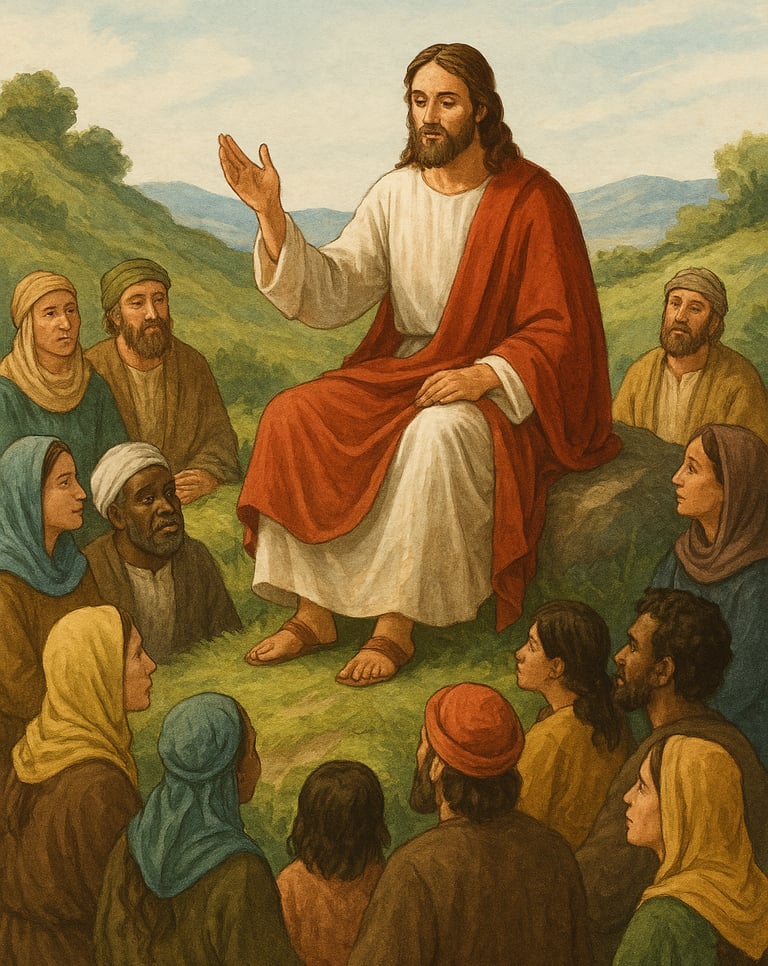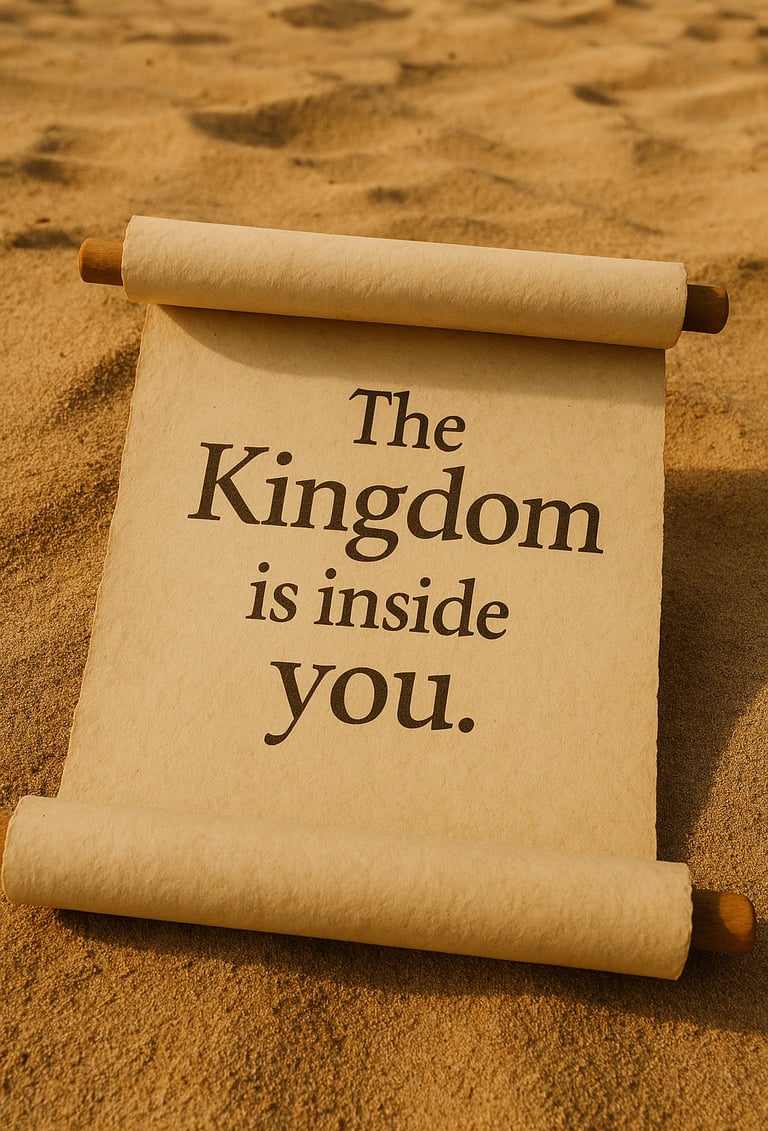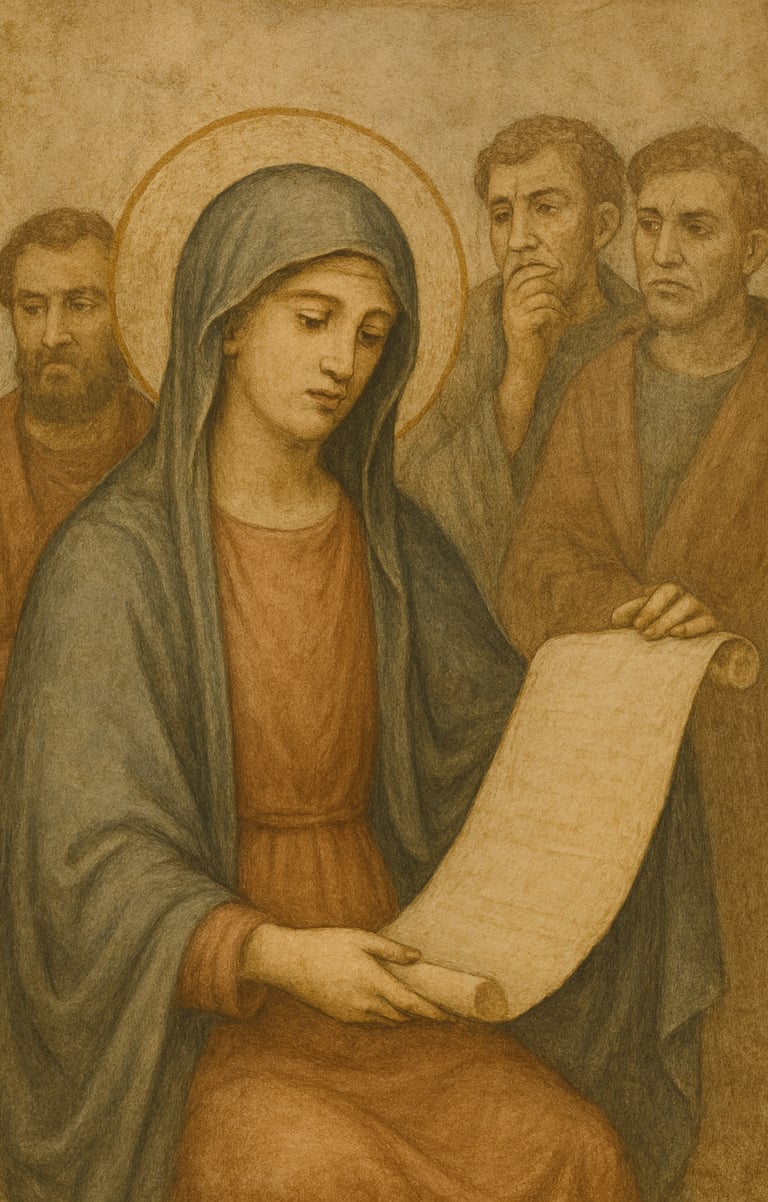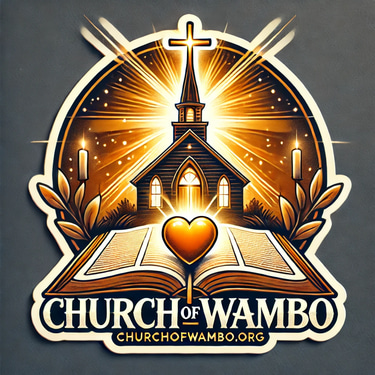A Fresh Look at the New Testament Part Two
✨ Back to the Source:
What Did Jesus Actually Teach?
So we’ve talked about Paul and how his teachings kind of took over Christianity. But now let’s hit pause and go straight to the source:
🕊️ What did Jesus himself teach? Like, before all the letters, councils, and centuries of church doctrine what was Jesus out there preaching?
The cool thing? His message was simple, radical, and honestly still just as powerful today.
❤️ The Core Message: Love God.
Love People.
When a religious scholar asked Jesus, “What’s the most important commandment?” he didn’t hesitate.
“Love the Lord your God with all your heart... and love your neighbor as yourself.
All the Law and the Prophets hang on these two commandments,” Matthew 22:37–40.
That’s it. Love God. Love your neighbor.
Everything else was just details.
🌍 A New Kind of Kingdom
Jesus wasn’t building a religion.
He was talking about a Kingdom of God, but not the kind with castles, crowns, or armies.
His “kingdom” was upside-down:
The poor were blessed.
The meek inherited the earth.
The last would be first.
You forgave your enemies.
You gave without expecting anything back.
"The Kingdom of God is within you," Luke 17:21.
(Not in a temple. Not in a church. Right inside you.)
🧼 Living the Teachings: Not Just Believing
Jesus didn’t ask people to just “believe in him.”
He asked people to follow him.
There’s a difference.
Belief is easy.
Following means actually doing the things he said:
Forgive people, even the ones who don’t deserve it.
Share your stuff. Feed the hungry. Welcome strangers.
Don’t judge others.
Don’t chase money or status.
Live like this world isn’t your final home.
🙌 The Sermon on the Mount (A.K.A. Jesus’ Greatest Hits)
If you want to read Jesus' teachings directly, this is the spot:
📖 Matthew chapters 5–7
It’s like Jesus’ TED Talk, but ancient and deeply challenging.
Some highlights:
“Blessed are the peacemakers.”
“Turn the other cheek.”
“Do not store up treasures on earth.”
“You cannot serve both God and money.”
“Love your enemies and pray for those who persecute you.”
🔁 Jesus vs. Religion
Jesus often butted heads with the religious leaders of his time.
They loved rules, rituals, status, and control.
But Jesus kept flipping the script:
He healed on the Sabbath (illegal).
He hung out with sinners and prostitutes (scandalous).
He called out hypocrites in power (dangerous).
He said God cares more about mercy than sacrifice.
He wasn't about founding an institution, he was about transforming hearts.
📖 Lost Gospels: The Sayings of Jesus They Didn’t Want You to Read
So, imagine this...
You’re in the Egyptian desert, digging through ancient caves, and you stumble across a jar full of fragile old books. You brush off the dust, and boom, inside are forgotten gospels that never made it into the Bible.
That’s literally what happened in Nag Hammadi, Egypt, in 1945.
A collection of early Christian writings was found, hidden away for almost 1,600 years. They were banned, labeled heresy, and nearly erased from history. But they survived. And now we get a glimpse into the voices of early followers who told the Jesus story a little differently.
🔍 What Are “Non-Canonical” Gospels?
"Canon" just means “official list.”
So, a non-canonical gospel is any gospel that didn’t make it into the New Testament.
These books weren’t necessarily fake or dangerous, just unofficial. They offer different perspectives on who Jesus was, what he taught, and how his followers understood him.
🌀 Gospel of Thomas: Jesus, Unplugged
This one’s a favorite among spiritual seekers.
🗝️ It’s not a story. There’s no crucifixion, no resurrection, no miracles.
It’s just a raw list of 114 sayings, Jesus talking directly.
Think of it like a spiritual quote book. Here are a few powerful ones:
“The kingdom is inside you and all around you.”
“If you bring forth what is within you, what you have will save you.”
“Split a piece of wood, and I am there. Lift a stone, and you will find me.”
Unlike the official Gospels, Thomas doesn’t make Jesus a sacrifice or focus on sin.
Instead, Jesus is more like a mystical teacher guiding people to inner awakening.
👩🦰 Gospel of Mary Magdalene: The Silenced Voice
In this gospel, Mary Magdalene isn’t just a background character, she’s a leader, a confidant, and possibly Jesus’ closest disciple.
After Jesus’ death, the male disciples are freaking out. Mary steps up and shares the wisdom Jesus gave her privately. But of course… Peter doubts her.
Peter: “Did he really speak with a woman without us?”
Mary: “Do you think I’m lying?”
Yeah. It gets spicy.
This gospel emphasizes:
Inner peace and freedom from attachments
Gender equality in spiritual understanding
That salvation comes through knowledge, not blind faith
✝️ Gospel of Peter:
Resurrection... with Drama
If the four Gospels tell the resurrection story like a thoughtful documentary, Peter’s gospel is the epic movie version.
Jesus walks out of the tomb tall and glowing
Two angel-giants accompany him
The cross itself speaks
It's symbolic, surreal, and very different from what you read in Matthew, Mark, Luke, or John.
Also? Pilate comes off a lot cleaner, and the blame for Jesus' death falls entirely on Jewish leaders, a detail that would later fuel tragic antisemitism.
Still, it shows us how early Christians were already interpreting the resurrection in mythic and metaphorical ways.
🧠 What These Gospels Teach Us
They’re not “better” or “worse” than the ones in the Bible.
They’re just different lenses.
Where Paul focused on faith in Jesus’ death, these writings return to Jesus’ life and teachings, especially the ones about:
Knowing yourself
Living from love
Finding the divine within
In some ways, these gospels sound more like Eastern spirituality than Western religion.
No wonder they’re popular with modern seekers in China, India, and beyond.
✨ Final Thought: What If These Weren’t “Lost,” but Just Hidden?
Maybe they weren’t meant to disappear forever.
Maybe they were buried so we could rediscover them at the right time, now, when the world is hungry for deeper spiritual truth beyond dogma.




😯 Did You Know?
Jesus never once said, “Worship me.”
He always said, “Follow me.”
Big difference.
🕯️ Hidden History
The earliest followers of Jesus were called The Way, not “Christians.”
Why? Because they followed a way of life, not a set of beliefs.




😲 Did You Know?
The earliest Gospel (Mark) originally ended with an empty tomb and no resurrection appearance.
The ending we now have (Mark 16:9–20)? That was added later.
🕯️ Hidden History
The early Church tried hard to destroy these alternative gospels.
Why? Because they challenged Paul’s theology and the growing Church hierarchy.
info@churchofwambo.org
© SDBEST LLC, 2025. All rights reserved.
